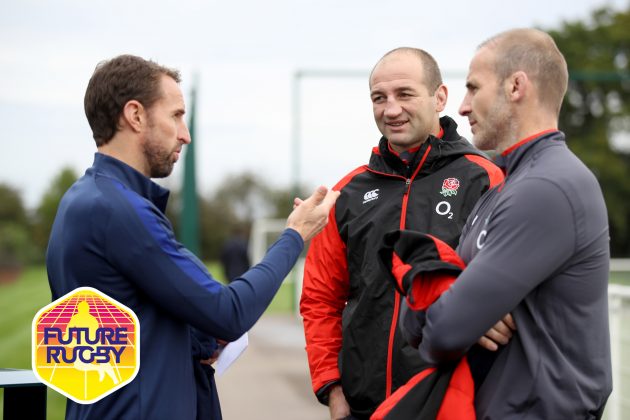Executives, coaches and analysts don't have to be dyed-in-the-wool rugby people to add value, argues Sam Larner
There are umpteen books written about what business could learn from elite level sport. A certain type of business owner likes the idea that what they are doing is in some way akin to what the All Blacks do or what Man City might do. For all that business is willing to learn from sport, sport doesn’t seem all that willing to learn from business. Businesses, at least successful ones, try and recruit the best people for the vacancy. They will often appreciate experience which comes from a different background.
Take Man City’s CEO Ferran Soriano. Before City he had footballing experience with Barcelona but also consumer goods, consulting, and airlines. That diversity of experience is always helpful in making sure the right decision is made. Ask a teacher, CEO, rugby coach, and child to solve a problem and they will each give you a different solution. Surround yourself with people whose only experience is rugby and you will be blind to a whole bunch of different options.
Lacking diversity of thought
This type of issue is prevalent right the way across rugby but the two areas I will focus on in this article are in key decision making roles on the business side of rugby and coaching. For that first point, rugby is in a fragile position, at least in the UK. We often hear that rugby is part of the entertainment business but it’s run almost entirely by people who have either only known rugby – playing, coaching, administrating or have had success in banking or consultancy, cashed out, and moved into rugby. Very rarely does someone make the journey over from football or tennis or cricket. Even rarer still is it that someone comes in from music, film, or TV. Rugby will occasionally make noises that it needs to follow what the NFL does but they don’t go and recruit people from that world. Instead people whose entire lives are rugby try and imagine how another sport might work.
Ultimately, the rugby business needs to become less parochial to thrive.
That’s not straightforward though. For starters, bringing on new ideas involves new people gaining power in the sport. That only happens if the existing stakeholders either leave or stay and dilute their power. Most will think that isn’t a price worth paying. Some might be convinced that a smaller slice of a bigger pie is worth it though.
Outsiders in coaching – not just the rugby business
Coaching is another area where rugby could do with looking outward. The general career path for a coach is to be a player, retire, and become a coach. Some will have done some coaching at a lower level while they played but many will only begin learning to be a coach when they already are one. We all know that you don’t need to be a horse to be a jockey, but does that mean that coaches from other sports could add value in rugby?
On one hand the answer is an obvious yes. There is a skill to coaching. The person-to-person interaction, training planning, and running a team are skills universal to all coaching roles in all sports. Take Pep Guardiola out of City and plonk him in a rugby team and he’ll bring all those skills along for the ride.
He won’t have the rugby knowledge though and that’s not something we can easily look past. While it’s true that playing rugby doesn’t mean you can coach it, having excellent rugby knowledge is required. Due to the general secretive nature of the sport, there aren’t that many people who have that knowledge who don’t play or are already coaches.
There are signs that might be beginning to change though. In France, clubs are looking towards referees to help support their coaching sides. There are a tiny, but growing number of coaches in the game who never played at the highest level, though the number who played no higher than grass-root’s level is non-existent. None of this is to say that rugby needs a drastic shift away from the player to coach pipeline. Other sports have shown how it can be done.
Stats and economics in the rugby business
Baseball has welcomed outsiders into the sport, despite its highly traditional background. For some in coaching roles they became high school coaches and then kept being successful and eventually reached the top. Others have come in through a different channel. Baseball has a well known relationship with statistics. In the post-Moneyball era there was a flood of analytical talent who came into the sport, mostly from the world of finance. They had a skillset that didn’t exist in the sport and so, after some pushback, were accepted in. Once they were in, they began to understand the sport as insiders and the walls baseball put up were collapsing.
Rugby doesn’t yet have the same movement and that’s mostly due to the incredibly low wages clubs pay analysts. While high-earners in the city are generally willing to take a pay cut to work in sport, there is a limit. Given enough time, we might start to see the status quo change. For now it’s not under particular threat but the first team to try it, and see an advantage, will open the floodgates.
Download the digital edition of Rugby World straight to your tablet or subscribe to the print edition to get the magazine delivered to your door.





